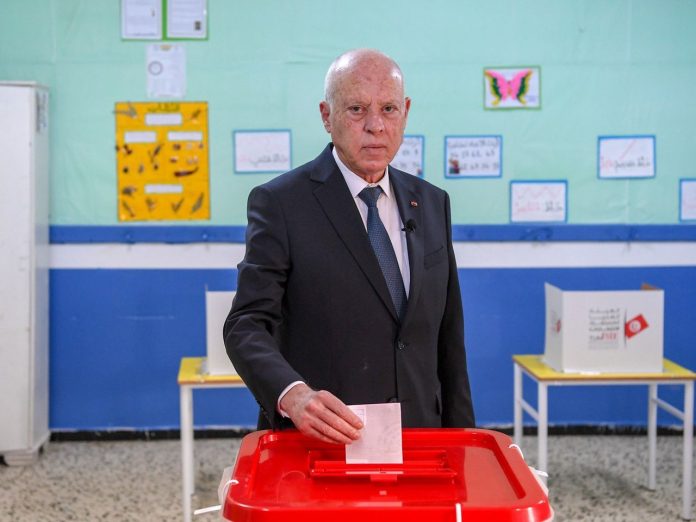Tunisia’s main opposition coalition has called for the formation of a united front against President Kais Saied after lackluster public participation in a second-round poll for a toothless parliament.
The call came after election results showed that only 11.3 percent of the electorate had partaken in the Sunday polls for what the opposition has denounced as a rubber-stamp parliament.
Independent observers have questioned official turnout figures, accusing authorities in many districts of withholding data they rely on to monitor the integrity of the elections.
“Almost 90 percent of Tunisian voters ignored this piece of theater and refused to be involved in the process,” Ahmed Nejib Chebbi, head of the National Salvation Front, told journalists, adding, “I call on political groups and civil society to join hands to work for change, in the form of Kais Saied’s departure and early presidential election.”
The low turnout reflected the Tunisian people’s lack of confidence in President Saied, Chebbi said.
During the first round of the parliamentary election in December, the official turnout was only slightly lower at 11.2%.
Saied has decreed the new, mostly powerless parliament as part of a reconfigured presidential system that he introduced after shutting down the previous parliament in 2021 and assuming broad control over the state. He has practically stripped the legislature of its powers and granted himself far-reaching authority since his power grab.
Saied’s critics accuse him of seeking to dismantle the democratic system enacted after Tunisia’s 2011 revolution.
The National Salvation Front said the low turnout exposed “the total failure” of Saied’s project, adding that it would not recognize the new parliament.
Chebbi urged key bodies, including the powerful UGTT trade union federation, which has hesitated to openly oppose the president, to join forces.
The cash-strapped country is struggling under debt worth around 80 percent of its gross domestic product.
With inflation above 10 percent and repeated shortages of household basics, the North African country’s 12 million people have been focused on more immediate issues.
The election came in the shadow of drawn-out negotiations with the International Monetary Fund for a bailout worth nearly $2 billion.
On Saturday, Moody’s rating agency downgraded Tunisia’s credit score to Caa2, citing “the absence of comprehensive financing to date to meet the government’s large funding needs.”













